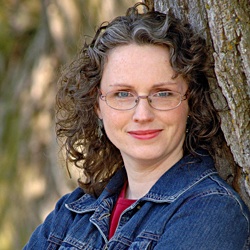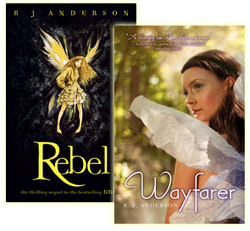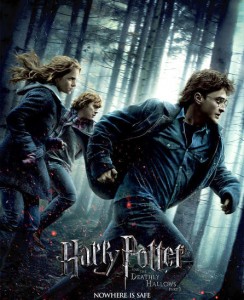
Marc Schooley
The question put to us is why fiction authors should read deep-doctrine nonfiction. I merrily accepted the invitation to consider and discuss this dear-to-my-heart topic at Speculative Faith and thank my fellow six-pointer E. Stephen Burnett both for the opportunity and the engaging thesis.
Letâs modify our question a bit: I am only qualified to address Christian fiction authors, and even in that tangentially toward a Christian trajectory more so than to attempt inform the fiction author component of the phrase. I wouldnât presume to offer anyone a roadmap to crafting fiction of any sort; it would only lead them to a kaleidoscope landscape where the paths all shifted underfoot and most of the red octagonal signs read go.
But that underscores the import of deep-doctrine nonfiction, doesnât it, and why Stephen has seemingly attached a deontological epistemic duty to itâthat all (Christian) fiction authors should read it? I think so. I agree with him, at the peril of inserting words in his mouth, that thereâs a duty involved, one thatâs mandated in Hebrews 5:12 to 6:1, for instance. In this, then, our first distinction appears: all Christian fiction authors should study deep doctrine because all Christians should study deep doctrine.
Itâs simply a matter of Christians acting as their faith dictates. Christian fiction authors, as a subset of the larger set of Christians, ought to possess a firm grasp of the truths of the Christian faith, beginning with the perspicacious, necessary foundations and progressing to those things we as Christians often argue over.
With regard to fiction, and to offset the somewhat heavy-handedness of this post thus far, this habit, developed by the Christian author, will yield great benefits in fiction, especially as compared with watching Desperate Housewives or even reading Gone With the Wind. Here are some reasons I think thisâŠ
Truth is stranger than fiction/plotâweâve all heard the clichĂ©, but perhaps we could rephrase it as truth is more interesting than fiction. We as Christians hold certain truths as true. These truths will inform fiction in a manner more interesting than fiction itself, just as the clichĂ© holds; they provide a framework that undergirds a fiction story, no matter the setting, plotting, or characterization, and provide a verisimilitude that endows a story with interest. Any world created by a Christian fiction author who studies deep-doctrine and consistently applies it would naturally have this feel. Though I disagree with its doctrine vociferously, in no small way was the success of the Left Behind series independent of this application of Christian doctrine into a Christian fiction.
Characterizationâwhatâs more important to successful fiction than characterization, Christian or otherwise? Plot, of course, but thatâs another post. (See how easy it is to rile the character-firsters in our midst? They are an emotional lot, after all. J) Regardless, imagine the inexhaustible wealth of characterization available to Christian writers within their own deep-doctrine! Let me, at the risk of shameful self-promotion, give some personal examples. In The Dark Man (attack helicopters!), Charles Graves is tormented by the sinful nature, a concept directly lifted from Christian doctrine, and all characters in the book are knowingly or unknowingly contrasted against it. Likewise, in Konigâs Fire, Sascha Konig confronts his sinful nature, and, as an academian, is tormented by the Problem of Evil:
If God is willing to prevent evil, but is not able to, then He is not omnipotent.
If He is able, but not willing, then He is malevolent.
If He is both able and willing, then whence cometh evil?
If He is neither able nor willing, then why call Him God?
Could you not find a novelâs worth of characterization in those lines? Or, in a current work-in-progress, Iâve begun to explore the lovely Vivianâs loneliness, alienation, and human fallenness and sin-separation against the backdrop of redemption, adoption, forgiveness, and love of God: all concepts derived directly from the study of deep doctrine.
There are billions of characters to be written around Christian doctrines and they apply so vividly and directly to usâŠbecause they derive from the truths of Christianity. If the truths of Christianity are true, and they are, what study could bring you closer to a characterâs heart than Christian doctrine? What conflict, emotional involvement, or driving need could be closer to the human condition, and thus a readerâs heart, not too mention her own and most intimate thoughts and experiences?
Symbolism & Themeâget your symbolism and theme right here folks. By basing fiction upon deep doctrineâpick any one you wantâthe symbolism of any story will force its way into the text. You canât even prevent it from doing so actually. In a sense, it will necessarily Pierce the Darkness or follow/guide John along his quest in A Pilgrimâs Regress.
Preventing/Combating Errorâanyone read The Shack? âNuff said. No, I retract thatâthe ânuff said part, anyway. The church is hemorrhaging in our day in part from a refusal on the part of Christians to study and profess sound doctrine. Now, Iâm not suggesting that Christian fiction ought to be preachy and dullâit must entertainâotherwise, it would be a married bachelor of sorts, so to speak. Nor do I suggest that Christian authors insist on divisive points of doctrineâalthough they can be utilized well for humor. Thatâs the realm of the polemic and the theology text, not the pages of fiction. However, itâs not too much to ask that its authors be sound in their underlying doctrine, orthodox in their beliefs, and to construct their worlds accordingly. In fact, not only is it not too much to ask, based on our first distinction above, itâs required.
These are four good reasons, I believe, why a grasp of deep doctrine informs Christian fiction in a positive manner, and since many more exist, Iâll leave it as further discussion or thought how good doctrine may positively affect our writing. The most important reason, however, is still our first distinction. The Christian walk requires two legs: doctrine and application. The latter is the performance of the former, and the Christian will limp through this Christian life without both fully functioning members. It should be obvious what one needs to do to actually run the race that the Apostle Paul is so fond of mentioning in Holy Scripture.
 Marc Schooley describes himself as “a Christian and a Texan … in that order.” While not working in the U.S. space program in Houston, loving his family or going to church, he enjoys studying theology, writing stories, and is completing a second Master’s degree. His first novel, The Dark Man, was published by Marcher Lord Press in spring 2009; his second novel, Konig’s Fire, also from Marcher Lord, released last month.
Marc Schooley describes himself as “a Christian and a Texan … in that order.” While not working in the U.S. space program in Houston, loving his family or going to church, he enjoys studying theology, writing stories, and is completing a second Master’s degree. His first novel, The Dark Man, was published by Marcher Lord Press in spring 2009; his second novel, Konig’s Fire, also from Marcher Lord, released last month.
The movie followed the book into the Dark Lord’s rising. Certainly it is serious and colored by evil, more so than any of the others, but so was the book. Perhaps no other scene epitomizes the evil more than the meeting of Voldemort’s council.










































 Marc Schooley describes himself as “a Christian and a Texan … in that order.” While not working in the U.S. space program in Houston, loving his family or going to church, he enjoys studying theology, writing stories, and is completing a second Master’s degree. His first novel, The Dark Man, was published by Marcher Lord Press in spring 2009; his second novel, Konig’s Fire, also from Marcher Lord, released last month.
Marc Schooley describes himself as “a Christian and a Texan … in that order.” While not working in the U.S. space program in Houston, loving his family or going to church, he enjoys studying theology, writing stories, and is completing a second Master’s degree. His first novel, The Dark Man, was published by Marcher Lord Press in spring 2009; his second novel, Konig’s Fire, also from Marcher Lord, released last month.
 Yet how do such readers discuss these matters with our brothers and sisters in Christ who have very different views?
Yet how do such readers discuss these matters with our brothers and sisters in Christ who have very different views?


